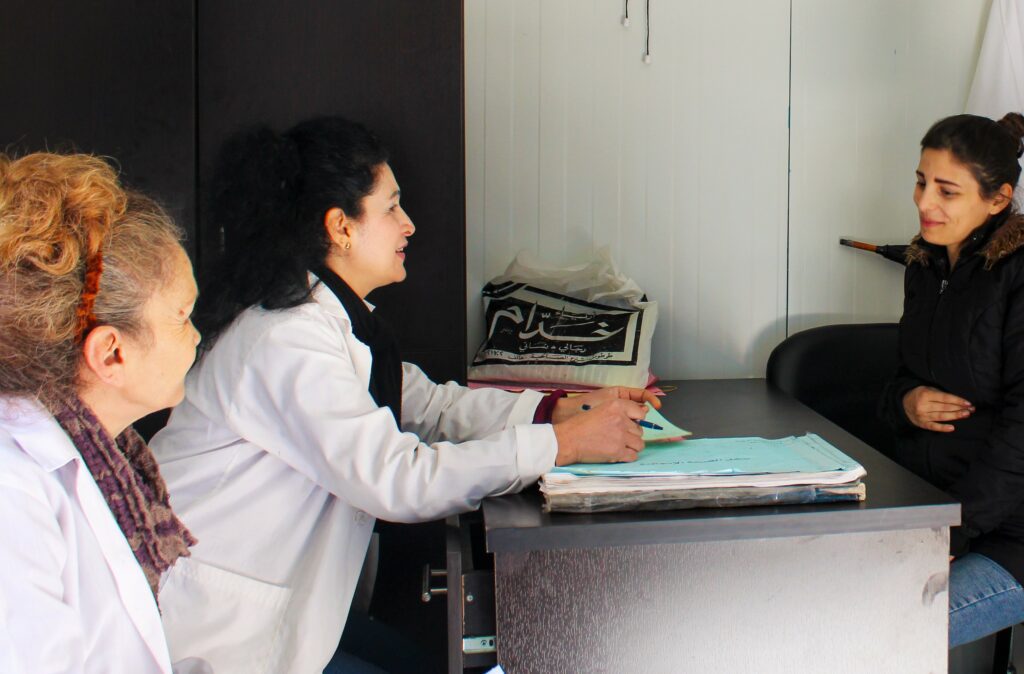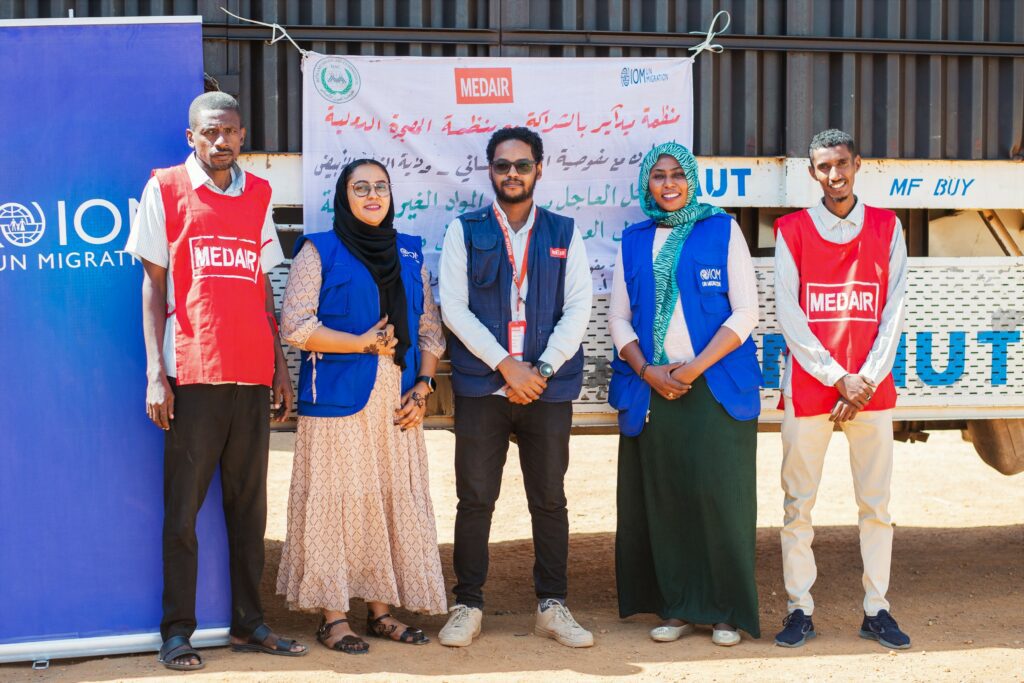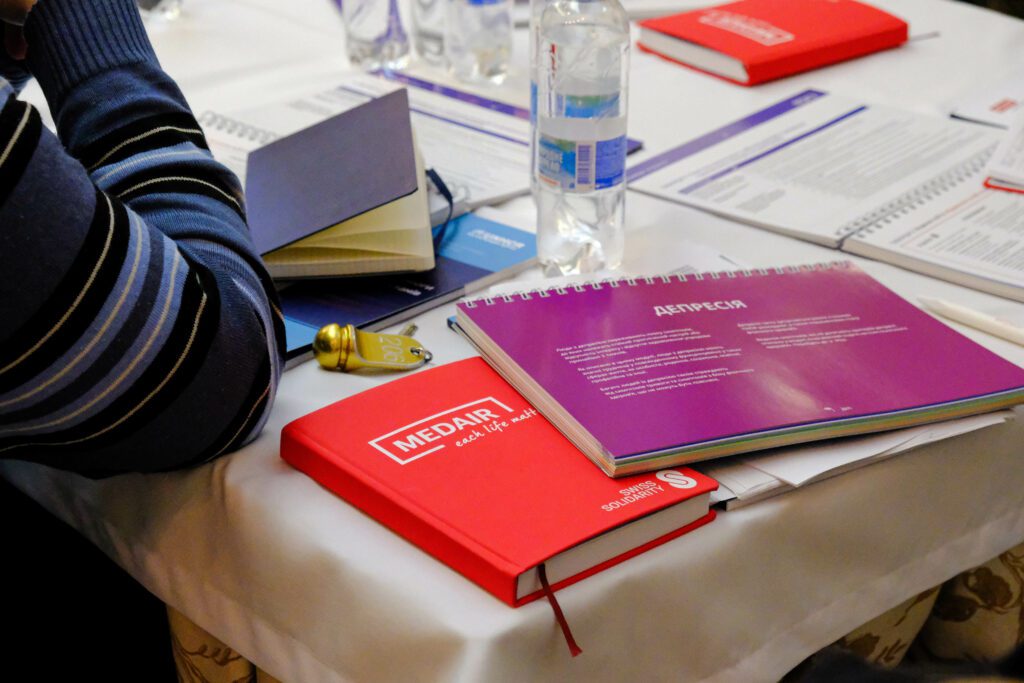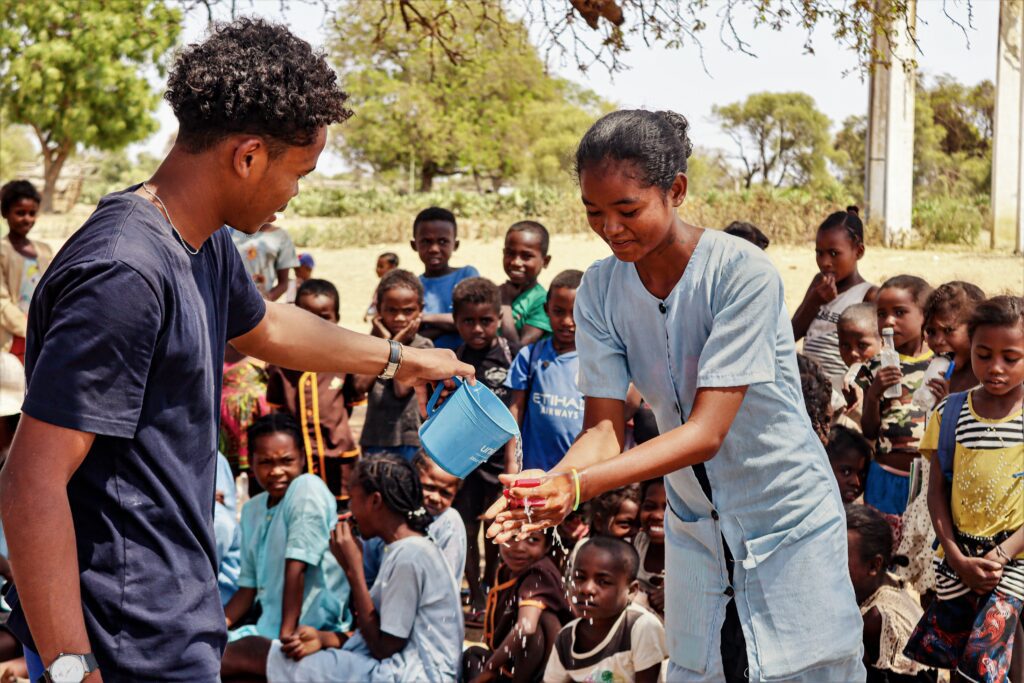One woman goes to great lengths to help her community in Afghanistan
Fewer places are more remote than the villages tucked into the sweeping mountains which frame Afghanistan’s Central Highlands.
Fewer places are more remote than the villages tucked into the sweeping mountains which frame Afghanistan’s Central Highlands.
To reach these communities, Medair’s team must frequently travel across treacherous terrain, over high and narrow mountain passes, through deep river valleys, and often on foot when the road ends.
Yet in the winter months, heavy snow makes the mountain passes inaccessible, cutting off these communities from the outside world for months at a time. Families are left to rely on whatever they have been able to grow or gather over the summer months, hoping that the food lasts until the warm weather returns.
It rarely does.
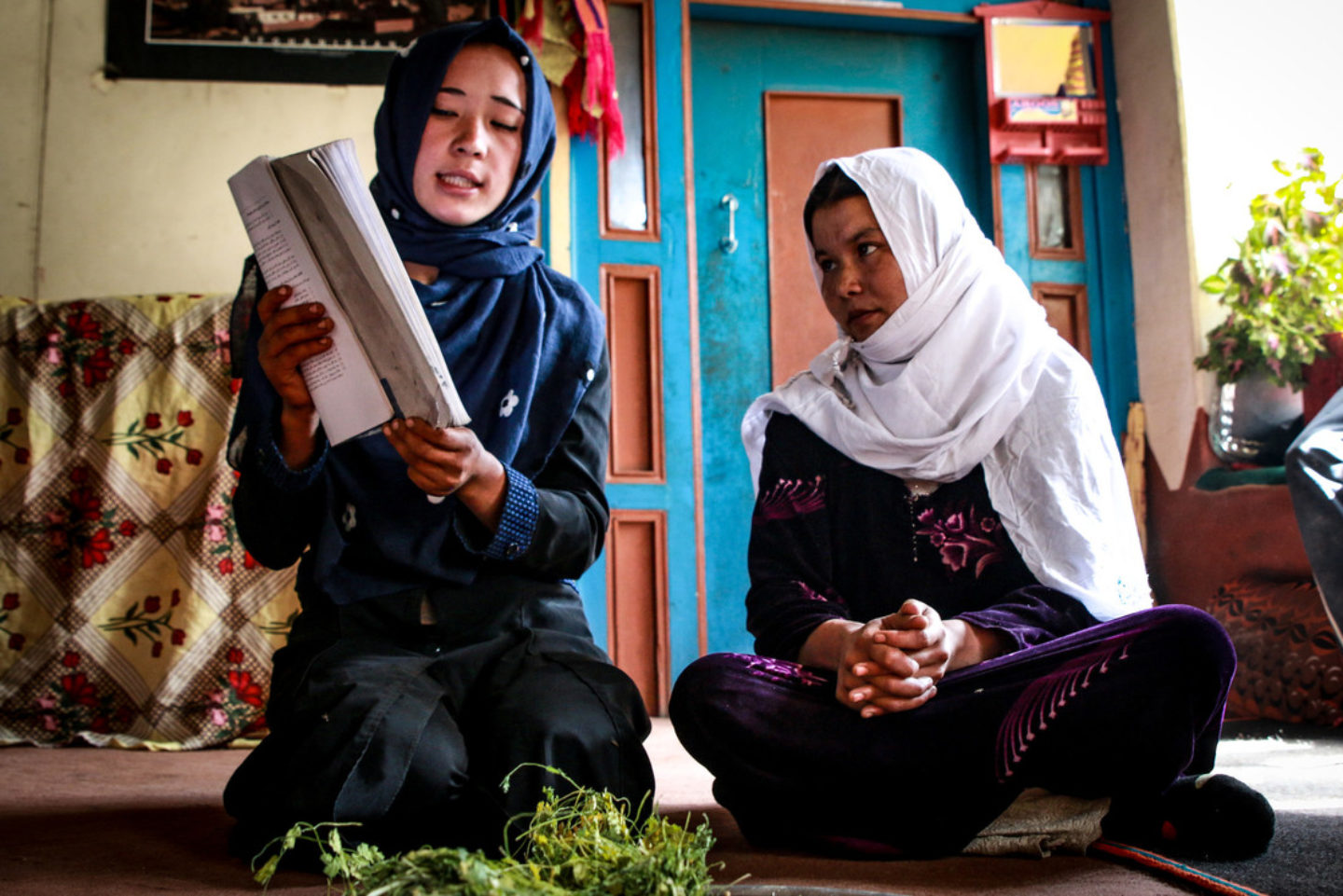
Medair is working in these communities with women like Rahima*, a behaviour-change and kitchen-garden promoter, to ensure families have the skills and knowledge to flourish in every season.
Rahima teaches other women not only how to build and maintain a kitchen garden near their homes, but also on the importance of consuming nutritious food.
“This is quite difficult sometimes as some of the villages are very far from my house. But I see the impact it has, so it is worth it.”

Kamela, a participant of the kitchen garden programme shares how having a kitchen garden of her own has impacted the well-being of her family:
“This was the first year that we had that many vegetables available. We did not have to buy tomatoes, squash, lettuce, cabbage, and other things. They came from our own kitchen garden. We used to only have one kind of food, but now we have more variety, which is helping to keep our family strong and healthy. They are no longer so weak and frequently ill.”
For women like Parwana, another participant of the kitchen garden programme, snowy winter months make markets inaccessible and vegetables are hard to come by.
“In the winter we used to only eat bread and drink tea. There was no variety. That was the only thing we had,” she says.
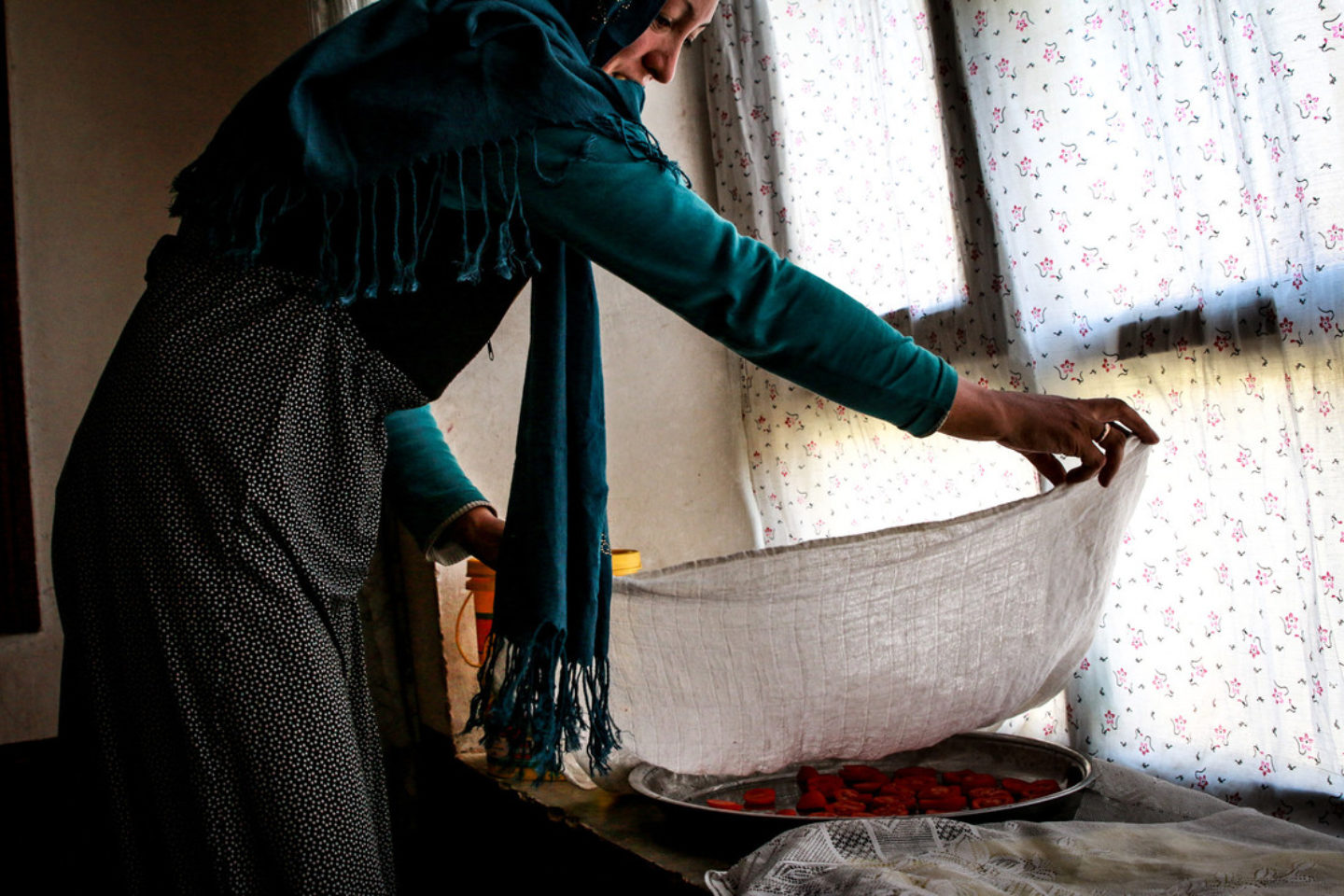
Through Rahima’s training, Parwana was not only able to grow her own vegetables, but she learned techniques for drying them so they could last during winter, ensuring a healthy diet during the cold months too.
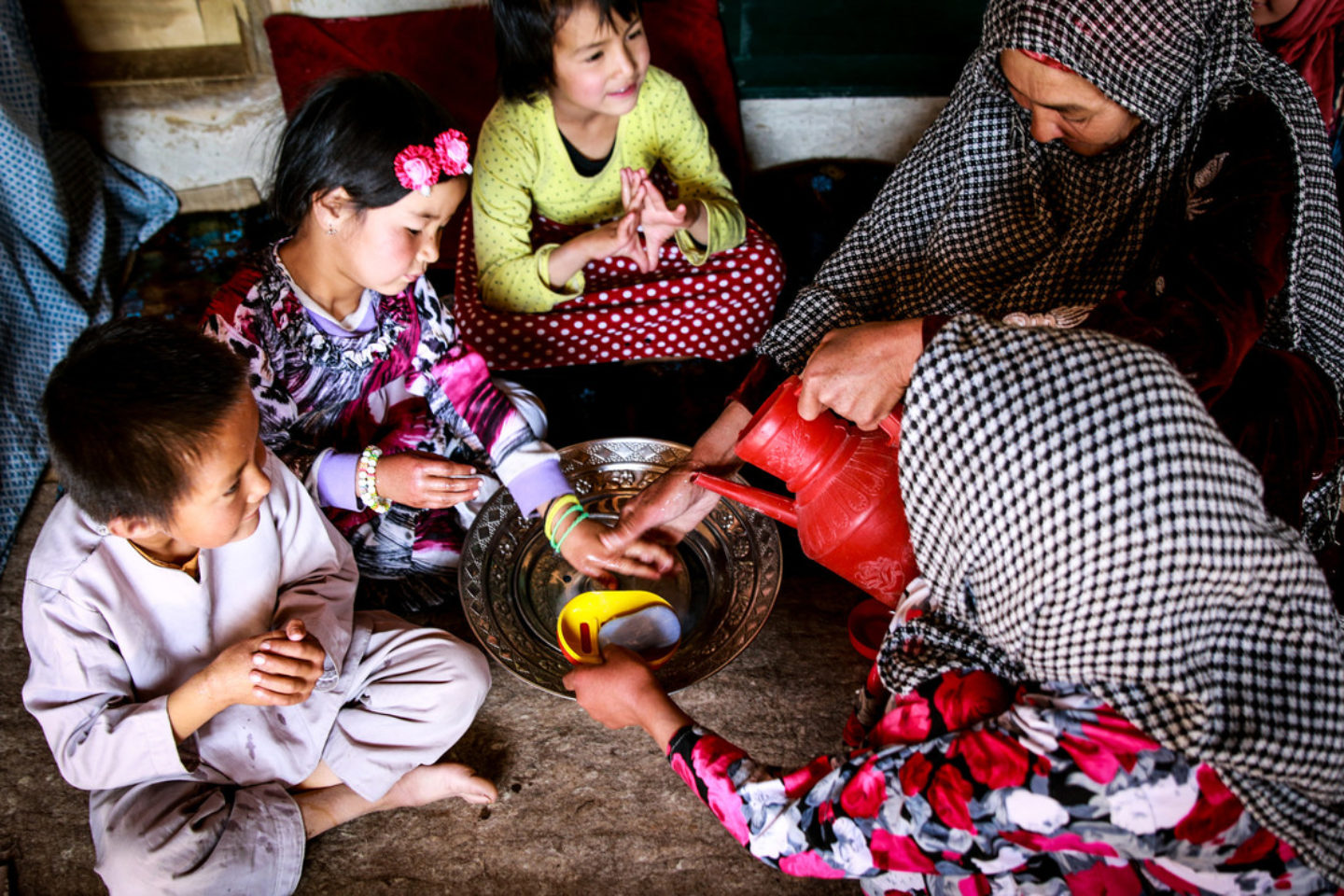
When asked about her favourite part of her role, Rahima says, “I like to teach the topic of hygiene the most, because a lot of people don’t know about it. It makes me very happy when I see people change their behaviours and start living a healthier life. For example, people did not know to wash their hands after going to the toilet and before cooking, so they were often ill and did not know why.”
Rahima and the other health promoters have many more villages in the Central Highlands to reach to educate the women on the benefits of kitchen gardening and hygienic practices.
If you’d like to partner with them to support more women like Parwana and Kamela and their families in tough times, please consider making a gift towards our Women and Children’s Fund. Each gift is a seed of hope that bears fruit in the lives of those living in some of the most isolated and often forgotten communities in the world.
This month, we are ‘cooking up’ something extra for our supporters – a culinary challenge!
Are you familiar with Afghan cuisine? If not, try out one of these recipes to get a taste of the local cuisine and let us know you did it by tagging us on social media @MedairInt.
*Names have been changed for reasons of security.
CHECK OUR LATEST STORIES
Featured StoriesStoriesSyriaHealth and Nutrition
A new life for a clinic in Syria
"The clinic is ready!" The news was music to Dr Eyad's,(the director of Tal Salhab clinic), ears. Medair had just completed the rehabilitation of Tal Salhab's only primary health centre, providing it with much-needed medical equipment – offering a lifeline to over...
StoriesSudanWater, Sanitation and Hygiene (WASH)
The Sudan crisis: how Medair is stepping in
Sudan crisis: how Medair is stepping in Twelve months into the armed conflict in Sudan, it has become the largest displacement crisis in the world. To date, 8.4 million people have been forced to flee their homes, and the number is growing every day. Families have...
StoriesUkraineHealth and NutritionMental Health
The Need for mental health support in Ukraine
“I really enjoyed the organization of these trainings. I’ve already gained a lot of interesting knowledge, which, it seems, I was already familiar with, but had never thought about it deeply. Learning new things, I understand how I can apply them in my work to...
StoriesMadagascarWater, Sanitation and Hygiene (WASH)
Medair’s innovative response to drought
In southern Madagascar, Medair aims to play a key role in improving access to water, sanitation, and hygiene for vulnerable communities affected by drought and 'kere' (famine). Normally, people living in remote villages in southern Madagascar need to walk 10 to 40...
StoriesUkraineShelter and Infrastructure
Surviving Adversity
“Sometime around 6 a.m., my nephew called me and said, ‘Are you still sleeping? THE conflict has started.’ I shouted at my children to turn on the television to watch the news. I never thought I would experience something like this at my age. It was a terrifying...
StoriesJordanHealth and Nutrition
Health Improvement Journey
"We lost everything, our home and farm, therefore I left everything behind me. I carry hope to have a better place for me and for my family," Fozeh said, her voice heavy with the weight of displacement but her spirit resilient with the promise of a brighter future....
StoriesMadagascarWater, Sanitation and Hygiene (WASH)Women & Children
Fetching water, a burden for women
In the struggle of finding clean water, women bear the heaviest load "In addition to my duties as a single mother, I have to fetch water three hours away every day," shares Farasoa, a 38-year-old divorcee raising seven children in the Fokontany of Ambory...
StoriesYemenHealth and Nutrition
From a shack to a health unit
Following nearly a decade of conflict in Yemen, the country has experienced a partial collapse of an already fragile public infrastructure, leaving approximately 66 percent of the population in dire need of humanitarian assistance. Yemen’s healthcare system has...


